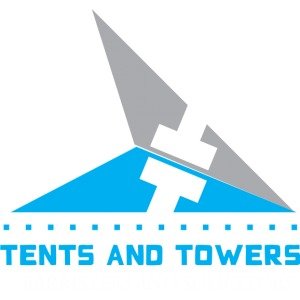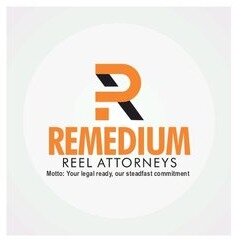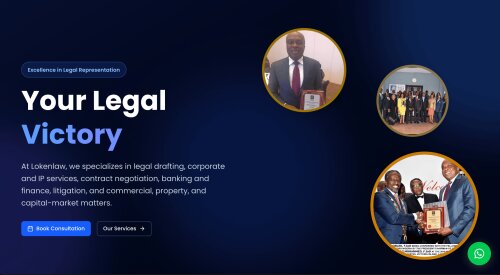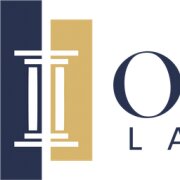About Admiralty & Maritime Law in Lagos, Nigeria
Admiralty and maritime law in Lagos, Nigeria encompasses a wide range of legal issues related to shipping, navigation, waters, commerce, sailors, and the transportation of goods and passengers by sea. As a bustling port city, Lagos plays a crucial role in Nigeria's maritime industry, acting as a hub for trade routes, shipbuilding, and commercial fishing. Admiralty law governs matters such as shipping contracts, maritime insurance, and injuries or damages occurring at sea. Understanding the intricacies of these laws is essential for resolving disputes that arise in Lagos's dynamic maritime environment.
Why You May Need a Lawyer
Individuals and businesses involved in maritime activities in Lagos may require legal assistance for various reasons. Common situations include:
- Disputes over shipping contracts and agreements.
- Claims of personal injury or death of maritime workers.
- Resolution of issues related to ship ownership and financing.
- Environmental claims related to shipping and navigation activities.
- Marine cargo and hull insurance disputes.
- Regulatory compliance with international and local maritime laws.
- Arresting or releasing vessels subject to legal claims or liens.
Local Laws Overview
Lagos, as part of Nigeria, is subject to a variety of international conventions and local legal frameworks pertaining to admiralty and maritime law. Key aspects of local maritime laws include:
- Nigerian Maritime Administration and Safety Agency (NIMASA): This agency oversees maritime regulatory compliance, safety standards, and ship registration.
- Merchant Shipping Act: A primary legislation governing shipping activities, seafarer's rights, vessel registration, and maritime safety.
- Carriage of Goods by Sea Act: Provides guidelines for the carriage of goods and liabilities of shippers and carriers.
- Oil in Navigable Waters Act: Addresses marine pollution and the prevention of oil spills.
- Local implementation of international conventions such as SOLAS (Safety of Life at Sea), MARPOL (Marine Pollution), and UNCLOS (United Nations Convention on the Law of the Sea).
Frequently Asked Questions
What is the role of the Nigerian Maritime Administration and Safety Agency (NIMASA)?
NIMASA is responsible for ensuring maritime safety, security, pollution prevention, and the regulation of shipping activities in Nigeria.
How do I resolve a dispute over a shipping contract?
Resolution typically involves negotiation, mediation, or arbitration. Legal counsel can help interpret contract terms and navigate dispute resolution procedures.
What should I do if my cargo is damaged during shipment?
You should immediately report the damage, document the condition of the cargo, and review the terms of carriage and insurance policies. Consider seeking legal advice to assess your claim options.
Can a vessel be arrested in Lagos? If so, under what conditions?
Yes, vessels can be arrested in Lagos as security for a maritime claim. Common grounds include unpaid debts, insufficient mortgage security, and claims for damages or wages.
What are my rights as a seafarer under Nigerian law?
Seafarers have rights under Nigerian law, including fair wages, safe working conditions, and access to correct procedures for reporting grievances.
What laws govern environmental protection related to maritime activities in Nigeria?
The Oil in Navigable Waters Act and regulations implementing the MARPOL convention are central to protecting marine environments from pollution and oil spills.
How do I ensure compliance with international maritime laws in Nigeria?
Consult with legal professionals specializing in maritime law to ensure compliance with both local regulations and international conventions such as SOLAS and UNCLOS.
What legal remedies are available for a breach of charter party agreements?
Remedies may include damages for breach, specific performance, or seeking an injunction, depending on the nature of the breach and terms of the agreement.
How can I secure financing for purchasing a vessel in Lagos?
Financing options include loans from maritime banks, private financiers, or using vessel mortgages. Legal advice can help in structuring and negotiating these agreements.
Is mediation a viable option for maritime disputes in Nigeria?
Yes, mediation is frequently used to resolve maritime disputes amicably without resorting to lengthy court procedures.
Additional Resources
For further support, consider reaching out to the following resources:
- Nigerian Maritime Administration and Safety Agency (NIMASA) - Essential for regulatory guidance.
- Lagos Chamber of Commerce and Industry - Offers networking opportunities and industry insights.
- Nigerian Bar Association's Section on Business Law - For referrals to maritime law experts.
- Federal Ministry of Transportation - Oversees transport policy, including maritime activities.
- International Maritime Organization (IMO) - For understanding international maritime laws affecting Nigeria.
Next Steps
If you need legal assistance in admiralty and maritime law, consider the following steps:
- Identify and document your specific legal issue or question thoroughly.
- Consult with a lawyer who specializes in admiralty and maritime law to understand your rights and options.
- Evaluate legal advice received and, if necessary, consider multiple consultations for a broad perspective.
- Stay informed about changes in laws and regulations by subscribing to relevant legal publications or joining maritime associations.
- Act promptly if involved in disputes or claims, as maritime legal issues often have time-sensitive implications.
Lawzana helps you find the best lawyers and law firms in Lagos through a curated and pre-screened list of qualified legal professionals. Our platform offers rankings and detailed profiles of attorneys and law firms, allowing you to compare based on practice areas, including Admiralty & Maritime, experience, and client feedback.
Each profile includes a description of the firm's areas of practice, client reviews, team members and partners, year of establishment, spoken languages, office locations, contact information, social media presence, and any published articles or resources. Most firms on our platform speak English and are experienced in both local and international legal matters.
Get a quote from top-rated law firms in Lagos, Nigeria — quickly, securely, and without unnecessary hassle.
Disclaimer:
The information provided on this page is for general informational purposes only and does not constitute legal advice. While we strive to ensure the accuracy and relevance of the content, legal information may change over time, and interpretations of the law can vary. You should always consult with a qualified legal professional for advice specific to your situation.
We disclaim all liability for actions taken or not taken based on the content of this page. If you believe any information is incorrect or outdated, please contact us, and we will review and update it where appropriate.















